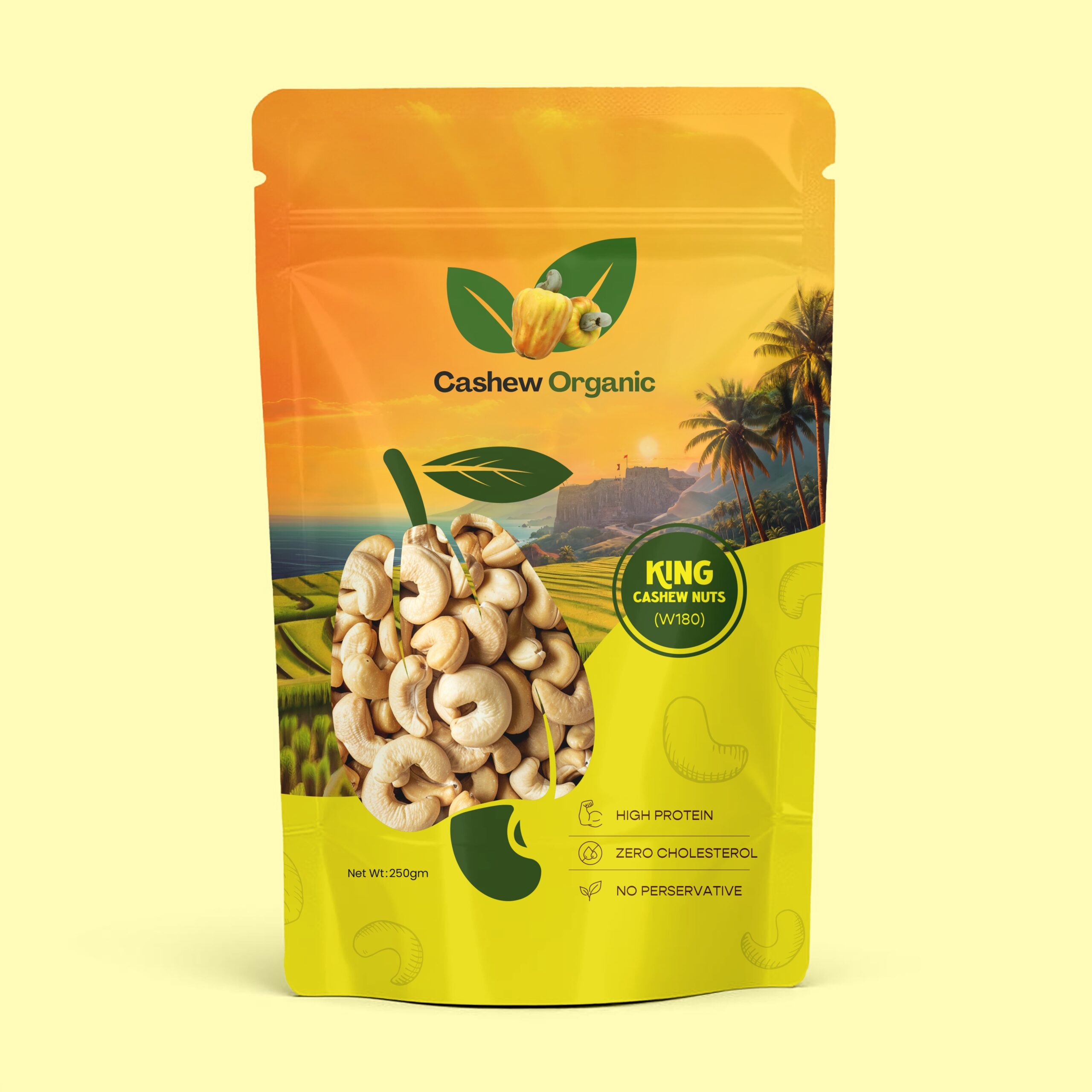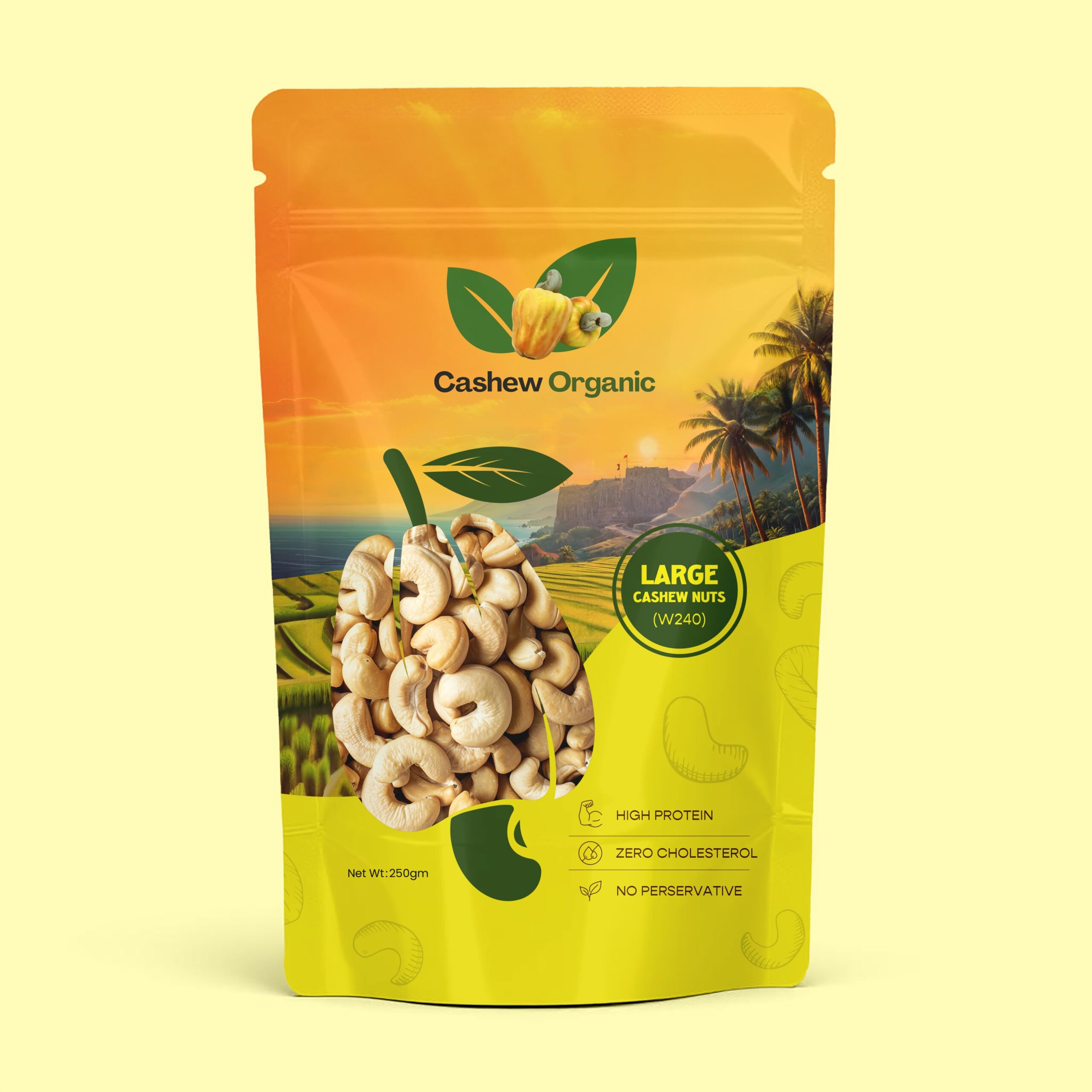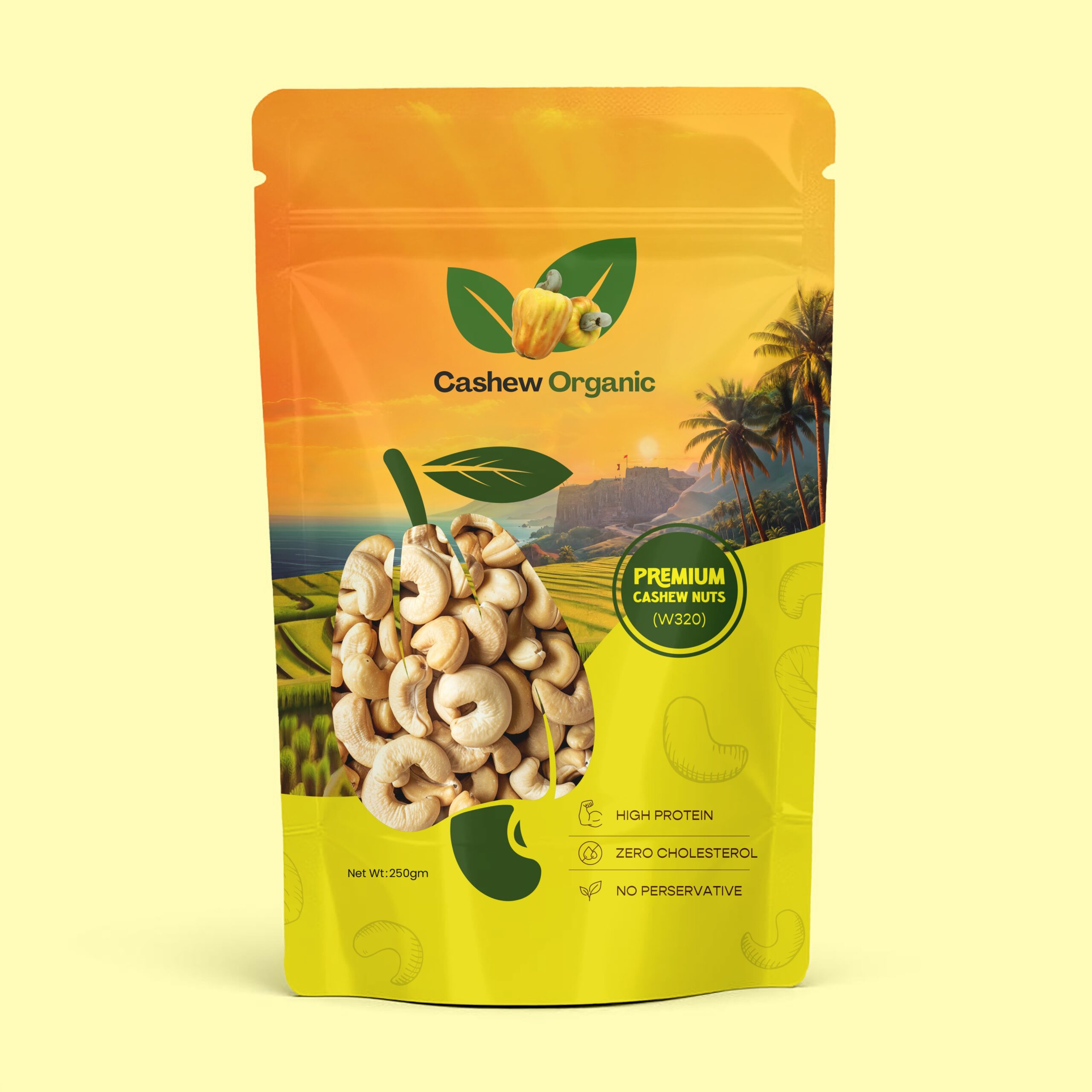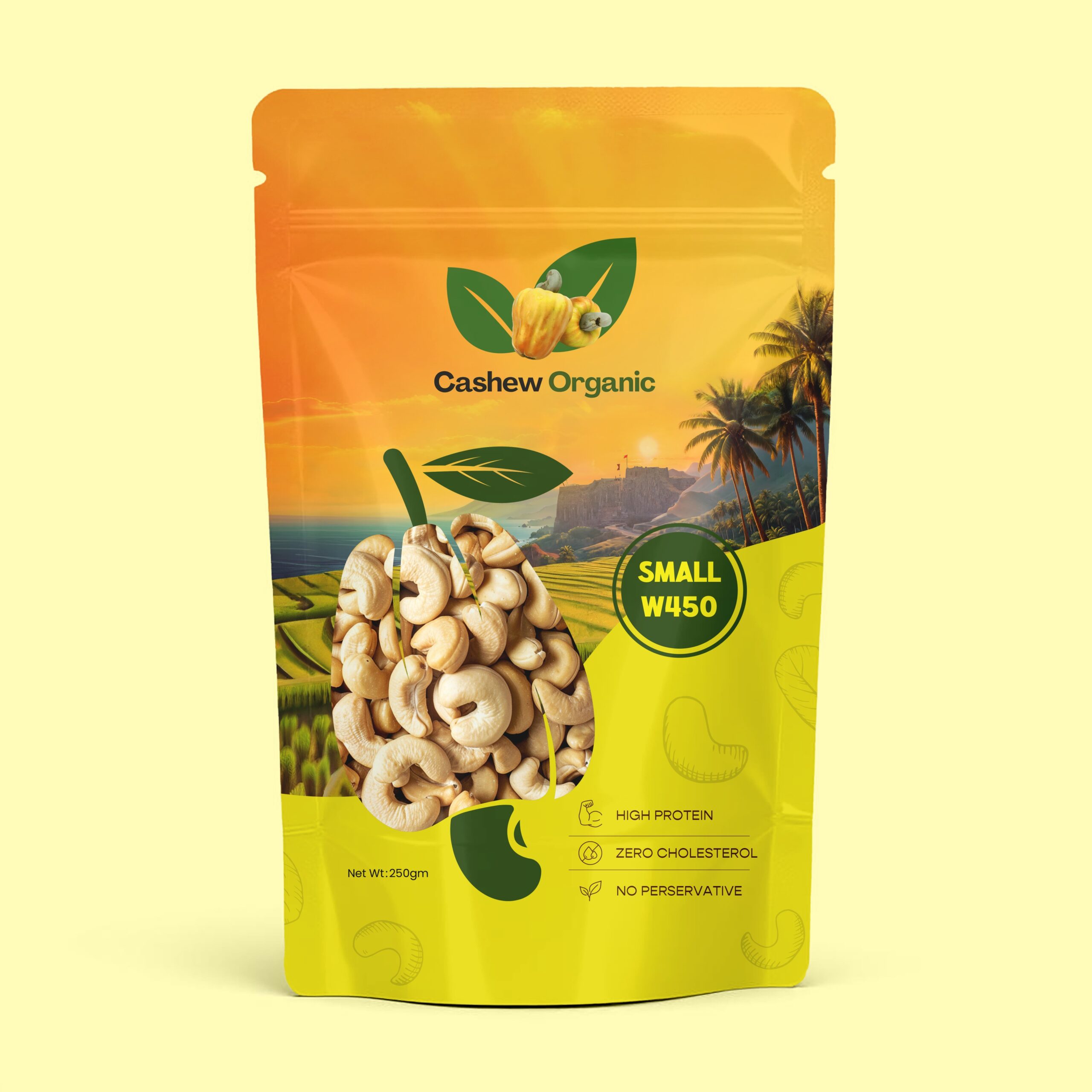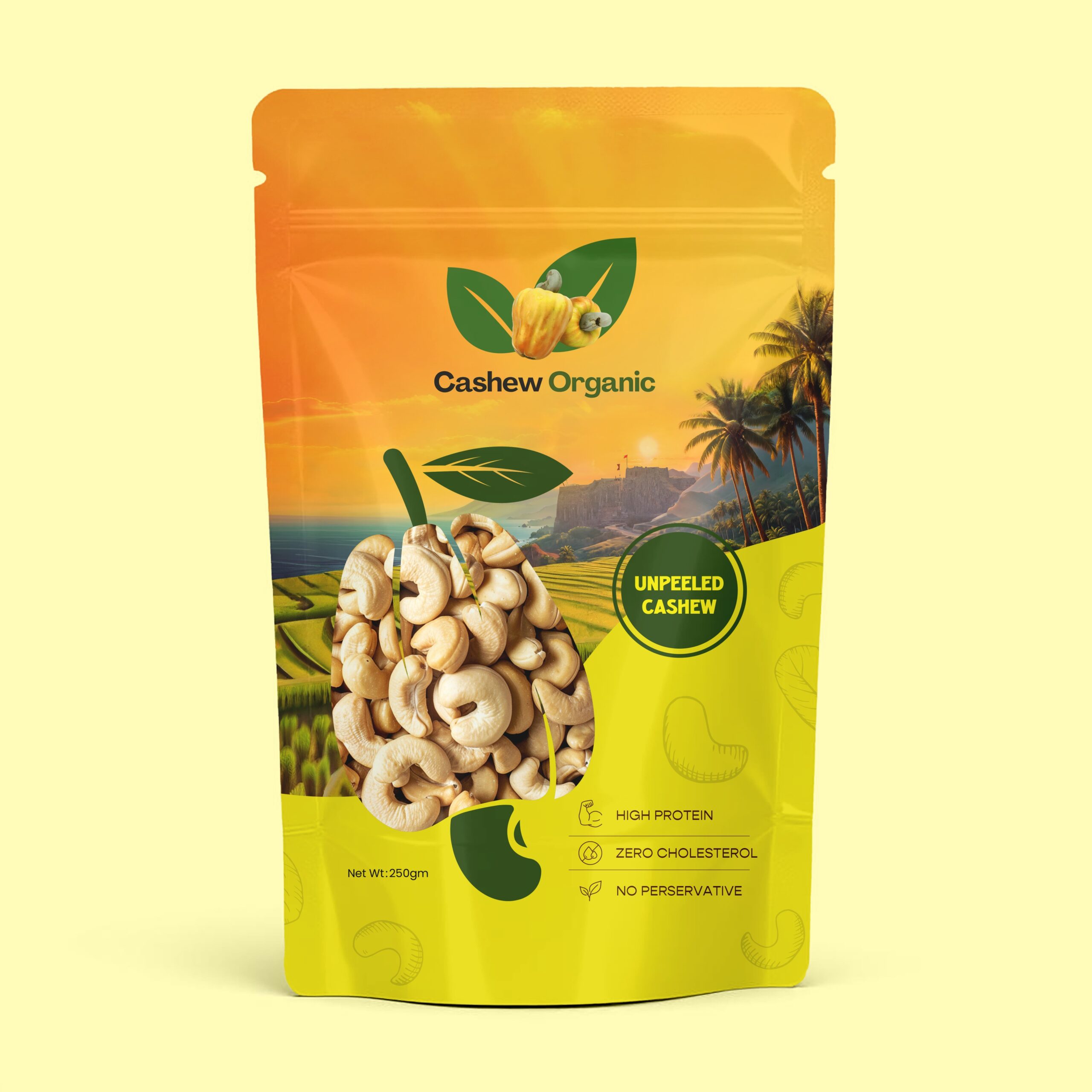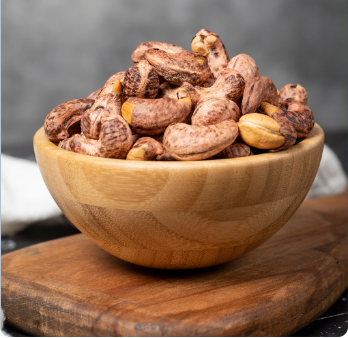The secret behind the exceptional quality of Konkan cashews lies in the unique climate of the region. Nestled along the western coast of India, the Konkan belt is blessed with a distinct tropical climate, where nature itself seems to have perfected the art of growing cashews. But what exactly makes this climate so special for cashew cultivation?
🌤 Perfect Temperature for Growth: Konkan’s climate is warm and humid, with temperatures ranging between 25°C to 35°C throughout the year. Cashew trees flourish in this temperature range, allowing them to grow vigorously and produce high-quality nuts. The consistent warmth ensures that the trees can develop a robust canopy, essential for supporting the heavy clusters of cashew apples and nuts.
💧 Monsoon Magic: The Konkan region experiences heavy rainfall during the monsoon season, which typically lasts from June to September. This abundant rainfall is crucial for cashew trees, as it replenishes the groundwater levels and provides the moisture necessary for the trees to thrive. The timing of the monsoon is perfectly aligned with the flowering and fruiting stages of the cashew tree, ensuring that the nuts have ample water to develop into plump, flavorful kernels.
🌱 Lateritic Soil Rich in Nutrients: The soil in Konkan is lateritic, rich in iron and aluminum, with excellent drainage properties. This well-drained soil is ideal for cashew cultivation, as it prevents waterlogging—a common issue in other regions. The iron content in the soil contributes to the vibrant green foliage of the cashew trees, while the aluminum helps in retaining essential nutrients, ensuring that the cashew nuts are packed with flavor and nutrition.
🌊 Saline Tolerance and Coastal Influence: One of the unique features of the Konkan region is its proximity to the Arabian Sea. The coastal influence creates a microclimate that is particularly favorable for cashew trees. The gentle sea breeze, combined with high humidity levels, helps in reducing the incidence of pests and diseases. Moreover, cashew trees in Konkan have developed a remarkable tolerance to saline conditions, making them resilient and capable of producing superior quality nuts even in challenging environments.
🌳 Sustainable Agroforestry Practices: Konkan farmers have mastered the art of integrating cashew cultivation with other crops and trees through sustainable agroforestry practices. By intercropping with nitrogen-fixing plants and maintaining a diverse ecosystem, they not only enhance soil fertility but also ensure that the cashew trees are well-nourished and protected from soil erosion. This sustainable approach results in higher yields and superior nut quality, all while preserving the natural beauty of the region.
The unique combination of these climatic factors makes Konkan cashews stand out in terms of taste, texture, and nutritional value. When you savor a Konkan cashew, you’re not just enjoying a nut—you’re experiencing the perfect harmony of nature’s elements, meticulously balanced to produce something truly special.

